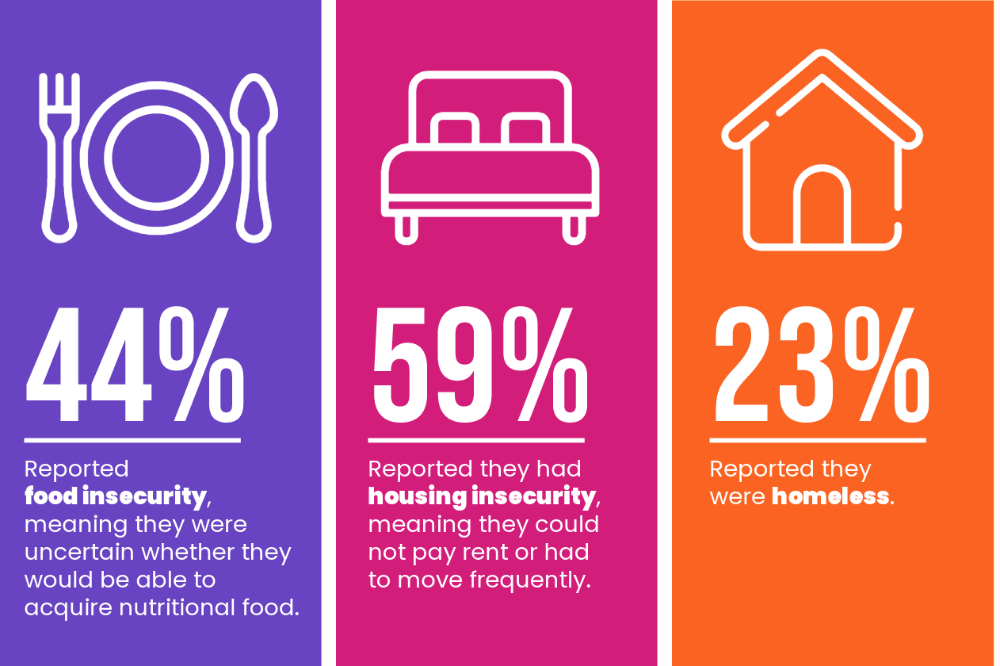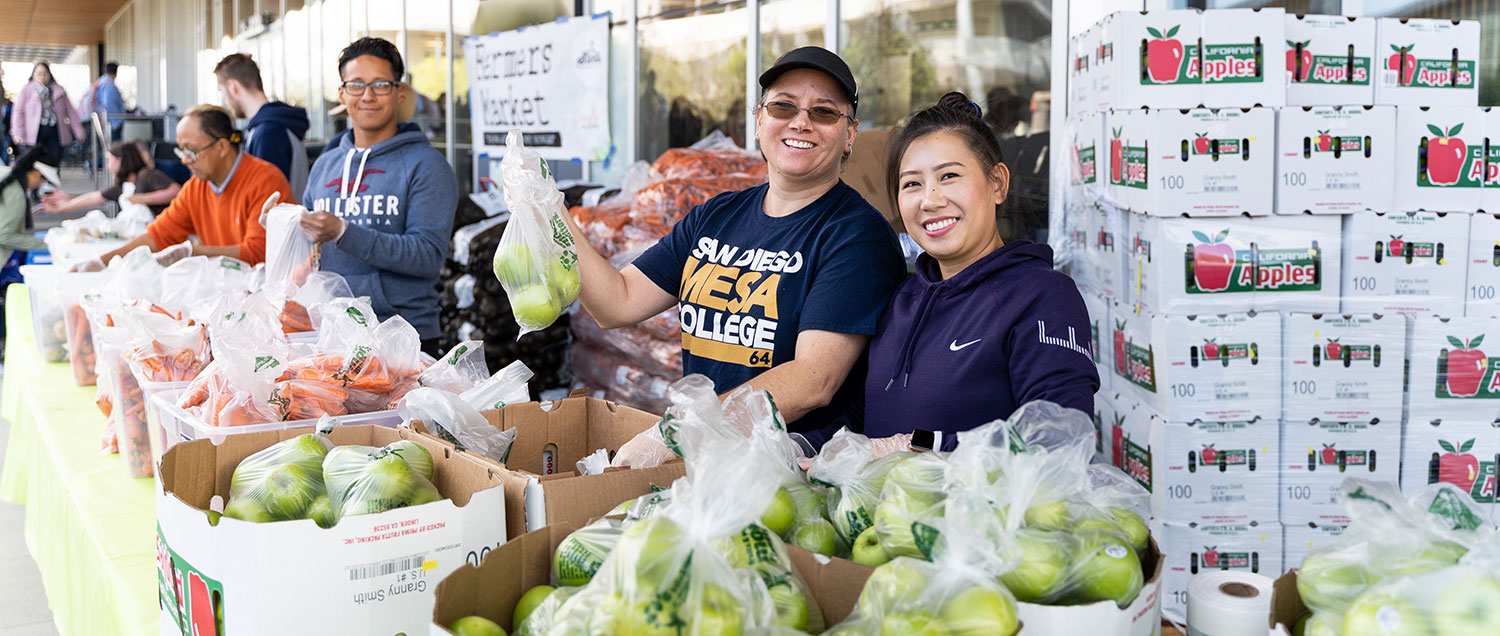 Well aware of the challenges that students face, SDCCD colleges ― San Diego City College,
San Diego Mesa College, San Diego Miramar College and San Diego College of Continuing
Education ― offer a wide variety of resources and help for students who are struggling
to obtain adequate food or housing or who are experiencing homeless.
Well aware of the challenges that students face, SDCCD colleges ― San Diego City College,
San Diego Mesa College, San Diego Miramar College and San Diego College of Continuing
Education ― offer a wide variety of resources and help for students who are struggling
to obtain adequate food or housing or who are experiencing homeless.
The Real College Survey, the largest annual assessment of basic needs security among California community college students, received responses from about 66,000 students at 88 community colleges statewide. More than 5,600 students from colleges in the SDCCD responded.
Of those San Diego students who responded to the survey, 44% said they had food insecurity, meaning they were uncertain whether they would be able to acquire nutritional food. About 59% said they had housing insecurity, meaning they could not pay rent or had to move frequently. About 23% said they were currently homeless.
The survey results from the SDCCD were comparable to the statewide results for California, which found that 47% of those surveyed had food insecurity, 58% had housing insecurity, and 24% were homeless.
The survey showed a 10% increase in student homelessness statewide since it was last conducted in 2020, and a 6% increase in housing insecurity. These trends were also similar for the SDCCD respondents. The increase in homelessness may be tied to higher rental costs, which in San Diego have increased 30% since 2020.
“Every member of our community deserves the opportunity to improve their life through education,” said Gregory Smith, chancellor of the SDCCD. “Resources have been established at each college to support students’ basic needs and ensure they can concentrate on their school work and complete their classes.”
Each of the four colleges in the District have food pantries, and the colleges maintain lists of local resources to support students in need of shelter or a meal. The colleges also offer transit passes, gas cards, clothing, and emergency grants.
At City College, the Knights’ Table Food Pantry offers meals, snacks, hygiene products, and diapers. Knights’ Threads & Things provides clothing and household items for students. A groundbreaking ceremony was held at City College in October 2023 for an affordable student housing apartment complex that would host 800 beds well below market rental rates and is expected to open in fall 2028.
At Mesa College, The Stand: The Dr. Pamela T. Luster Resource Center provides an emergency food pantry, clothing, basic needs counseling, student support, and food distributions twice a month. The college offers $50-$500 grants and loans from its Resiliency Fund for students who experience an emergency, and service cards are available for food, transportation, and toiletries.
At Miramar College, the Jet Fuel Pantry partners with Feeding San Diego’s Retail Rescue program to receive fresh produce and other items that may otherwise have been thrown away. Miramar College also has a partnership with Farmer’s Fridge, a healthy food service that allows more access to nutritious foods for students. In the 2022-2023 school year, the college distributed 62,500 pounds of food and served more than 6,800 students.
College of Continuing Education offers the CARES program, an acronym standing for its Commitment to Accessible Resources for Educational Support.
The program provides support to students with free clothing, personal hygiene items, food and transportation gift cards, and referrals to support services. The CARES Marketplace provided food to more than 3,000 students in the first two months of the fall 2023 semester.
